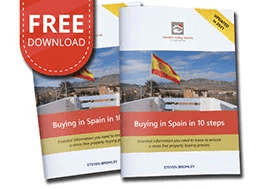New 2025 Rules for Short-Term Rentals in Spain: Mandatory Registration Explained

Mandatory Short-Term Rental Registration in Spain – What You Need to Know Before July 2025
Are you currently renting out your property on platforms like Airbnb or Booking.com? Or are you thinking about doing so in the near future? If so, there’s an important change you need to be aware of.
From 1st July 2025, it will be a legal requirement in Spain to register any property used for short-term or holiday rentals. This applies across the board – whether you rent out a whole villa, a countryside casita, or even a room in your home.
Let’s walk through what this means for you, why it’s being introduced, and how you can stay compliant with the new law.
Why Do I Need to Register My Property?
You might be wondering why this is necessary – especially if you’ve been letting your property without issue for some time. Here’s why the Spanish government is making this move:
- Legal Compliance
The new regulations are designed to ensure all short-term rental properties meet national and local requirements – including safety, hygiene, and zoning rules. - Transparency & Control
Authorities will be able to monitor the growing rental sector more effectively. This helps prevent illegal lets and ensures property owners are operating within the law. - Fair Competition
If you’re following the rules, you’ll benefit from a more level playing field. Registered properties will be clearly distinguished from those operating under the radar. - Guest Confidence
Renters will have peace of mind knowing they’re staying in a registered, legally compliant property – something that can enhance your credibility as a host.
How Do I Register My Property?
It’s not as complicated as it may sound, but it does require some preparation. Ask yourself: Do I have all the necessary documents ready? Here’s a simple step-by-step guide:
- Access the Online Platform
Go to the official College of Registrars website:
https://sede.registradores.org - Verify Your Identity
You’ll need a digital certificate or electronic ID (DNIe) to complete the process securely. - Complete the Online Form
You’ll need to provide key details such as:- Property address
- Type of rental (whole property or individual rooms)
- Maximum number of guests
- Upload Supporting Documents
Have these documents ready:- Title deed (Escritura)
- Energy efficiency certificate
- Tourist licence (if required by your local authority)
- Any other relevant permits (check with your town hall or local registry)
- Receive Your Registration Number
Once approved, you’ll be given a unique registration number. This must be included in all your online listings moving forward.
What If I Don’t Register?
Non-compliance can result in more than just a slap on the wrist. Fines may be issued, and perhaps more worryingly, platforms such as Airbnb and Booking.com could remove your listing if your property is not registered. This could seriously limit your visibility and income opportunities. It could also have insurance implications if you do not compy.
What Should I Do Now?
With the deadline fast approaching, it’s wise to get ahead. Ask yourself:
- Have I gathered all the required paperwork?
- Do I need help navigating the online registration system?
- Do I need to check with my local town hall about extra municipal requirements?
Planning to rent your property short-term? Make sure you’re ready for the new registration rules by July 2025.












 Zurück
Zurück Kaufen nach BREXIT
Kaufen nach BREXIT
 Kaufen in Spanien in 10 Schritten
Kaufen in Spanien in 10 Schritten
 Ihre Villa zum Verkauf präsentieren
Ihre Villa zum Verkauf präsentieren






